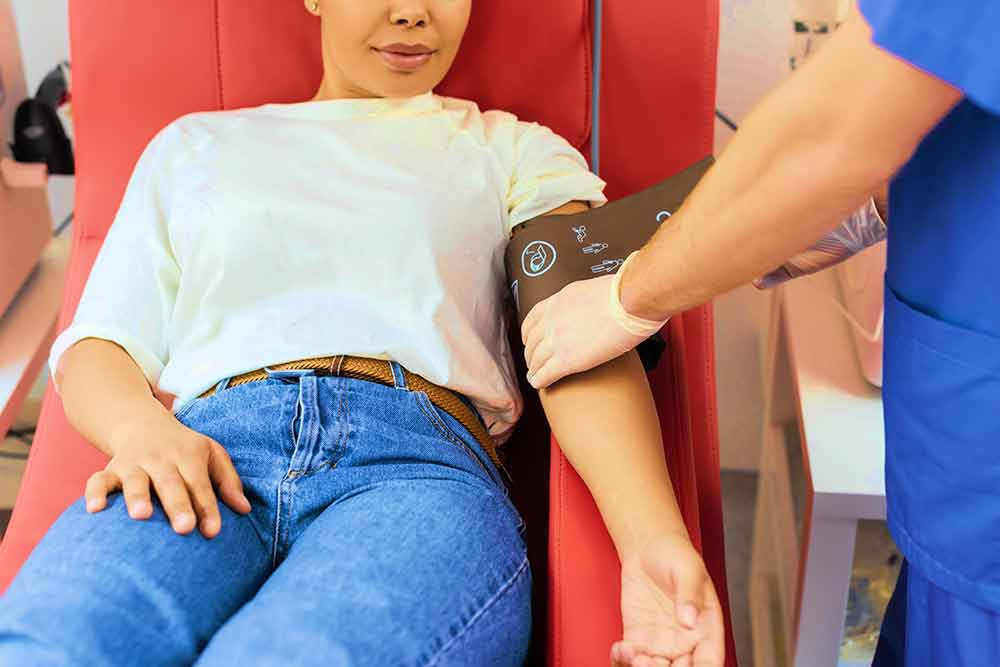
Hypertension, commonly referred to as high blood pressure, is a chronic medical condition characterized by persistently elevated blood pressure in the arteries. This condition compels the heart to exert more force than usual to circulate blood throughout the body, potentially leading to severe health complications such as heart disease, stroke, and kidney failure. Blood pressure is quantified in millimeters of mercury (mmHg) and is represented by two measurements: systolic pressure, which occurs during heartbeats, and diastolic pressure, which occurs between heartbeats. Hypertension is diagnosed when these readings consistently exceed 140/90 mmHg.
The development of hypertension is influenced by a combination of genetic, lifestyle, and environmental factors. Genetics play a significant role; individuals with a family history of high blood pressure are more predisposed to developing the condition. Lifestyle choices such as poor diet, lack of physical activity, and excessive alcohol consumption also contribute significantly to elevated blood pressure. Obesity is another critical risk factor, as excess body weight increases the strain on the heart and blood vessels. Smoking further exacerbates the condition by damaging the arterial walls and promoting plaque buildup, whereas chronic stress can lead to temporary spikes in blood pressure, which, over time, may become permanent.
Despite its potential severity, hypertension often goes undetected because it typically presents no overt symptoms, which is why it is frequently dubbed ‘the silent killer’. However, some individuals may experience headaches, shortness of breath, or nosebleeds, particularly if the hypertension is severe or long-standing. Given the asymptomatic nature of the condition, regular blood pressure screenings are crucial for early detection and management. Understanding the various causes and risk factors associated with hypertension is essential for preventing its onset and mitigating its impact on overall health.
Managing hypertension is a multifaceted approach that combines lifestyle modifications with, when necessary, medication. Central to this strategy is adopting a balanced diet. The DASH (Dietary Approaches to Stop Hypertension) diet is particularly effective, emphasizing the consumption of fruits, vegetables, whole grains, and low-fat dairy products. This dietary regimen is designed to provide essential nutrients while reducing the intake of sodium, saturated fats, and added sugars, all of which can contribute to high blood pressure.
Regular physical activity is another cornerstone of hypertension management. Engaging in activities such as walking, jogging, or swimming for at least 30 minutes most days of the week can significantly help in maintaining healthy blood pressure levels. Exercise not only strengthens the heart but also improves blood circulation and promotes overall cardiovascular health.
Reducing salt intake is crucial for controlling hypertension. It is recommended to limit sodium consumption to less than 2,300 milligrams per day, with an ideal target of 1,500 milligrams for those with high blood pressure. This can be achieved by avoiding processed foods, reading food labels carefully, and using herbs and spices to flavor meals instead of salt.
Limiting alcohol consumption and avoiding tobacco use are also essential steps in managing hypertension. Excessive alcohol intake can raise blood pressure, while smoking damages blood vessels and accelerates the hardening of arteries, both of which exacerbate hypertension.
Incorporating stress management techniques into daily routines can have a profound impact on blood pressure. Practices such as mindfulness, yoga, and deep breathing exercises help in reducing stress levels, which in turn can lower blood pressure. These techniques promote relaxation and enhance emotional well-being, contributing to better hypertension control.
For individuals who require medication, understanding the types of antihypertensive drugs and adhering to prescribed treatment plans is vital. Common medications include diuretics, ACE inhibitors, beta-blockers, and calcium channel blockers. It is important to follow the healthcare provider’s instructions and attend regular check-ups to monitor the effectiveness of the treatment and make necessary adjustments.
Regular blood pressure monitoring is a key component of managing hypertension. Keeping track of blood pressure readings at home and having routine check-ups with healthcare providers ensure that the condition is effectively managed and any necessary interventions are promptly implemented.